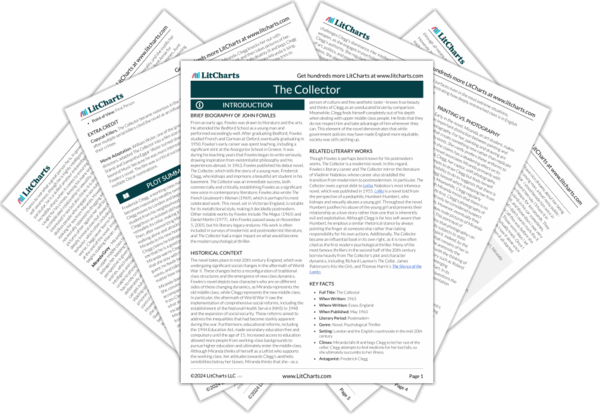For much of the novel, Miranda has compared her relationship with Clegg to Miranda and Caliban from
The Tempest. Miranda and Caliban are enemies in the play and, in the end, go their separate ways. Here, Clegg invokes a different Shakespeare play to suggest that he wants others to think his relationship with Miranda was deeply romantic, even though he knows this is not true. Ultimately, Clegg is more interested in what other people think about him than he does about doing the right thing.
